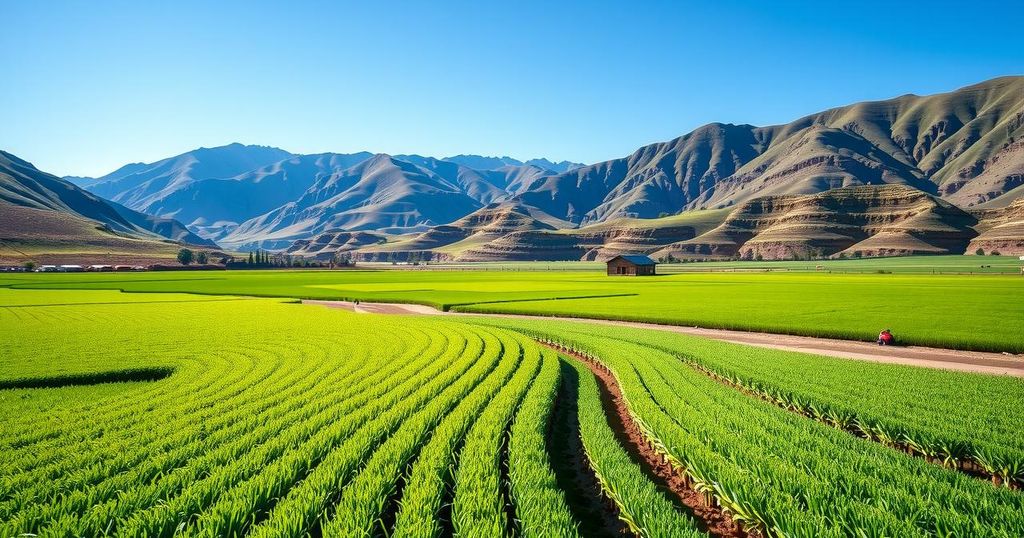Peruvian Farmer Challenges RWE in Groundbreaking Climate Liability Case

A Peruvian farmer is suing German energy company RWE, claiming its emissions contribute to glacier melting and flood risks in his community. The landmark case may set a precedent for holding corporations accountable for past emissions, with Lliuya seeking funding for flood defenses. RWE contests liability, while legal experts emphasize the case’s importance for climate litigation.
A significant court case in Germany involves a Peruvian farmer, Saul Luciano Lliuya, who is suing the energy company RWE. He contends that RWE’s greenhouse gas emissions have accelerated the melting of Andean glaciers, increasing the flood risk to his community. This case may set a crucial precedent for climate-related litigation, potentially holding corporations liable for historic emissions and their impacts on affected regions.
Supported by Germanwatch, Lliuya is seeking approximately 21,000 euros ($23,000) to contribute to a $3.5 million flood defense initiative. He states that RWE is responsible for nearly 0.5% of global greenhouse gas emissions since the industrial revolution, arguing that the company should bear part of the costs for climate change mitigation.
Legal experts like Sebastien Duyck from the Center for International Environmental Law emphasize the importance of this case in determining the legal accountability of corporations for emissions. The financial responsibilities of developed nations to address climate change effects have been contentious at U.N. climate summits through COP29.
Harjeet Singh, from the Satat Sampada Climate Foundation, highlights that cases like Lliuya’s could create avenues for alternative funding aimed at recovering costs related to climate impacts, reinforcing accountability for major contributors to climate change.
RWE argues it should not be held individually accountable for global warming. The company suggests that applying such liability would extend to all carbon emitters, which it deems unreasonable. The legal proceedings began in Essen in 2015 but gained traction after being initially dismissed, allowing for continued examination under the Higher Regional Court of Hamm.
The court must establish if melting glaciers indeed elevate water levels in Lake Palcacocha, threatening Lliuya’s home in Huaraz over the next three decades. Experts assessed the risk of ice avalanches and rockslides in 2022, with findings from these evaluations being crucial to the proceedings. Reliable sources indicate that climate change significantly contributes to glacier retreat, underscored by a study from Oxford and Washington universities.
Lliuya’s lawyer, Roda Verheyen, views the court’s acceptance of the case as a notable achievement considering Lliuya’s previous skepticism regarding the likelihood of progress. This ongoing litigation reflects a crucial moment in the intersection of legal accountability and climate justice.
In conclusion, the legal battle initiated by Saul Luciano Lliuya against RWE serves as a pivotal moment in climate litigation, potentially establishing accountability for corporate emissions. It underscores the need for corporations to contribute to funding climate adaptation projects in affected communities. As the court deliberates on the direct threats posed by melting glaciers, the outcome could significantly influence future climate justice cases and corporate responsibility in mitigating climate change effects.
Original Source: kfgo.com






